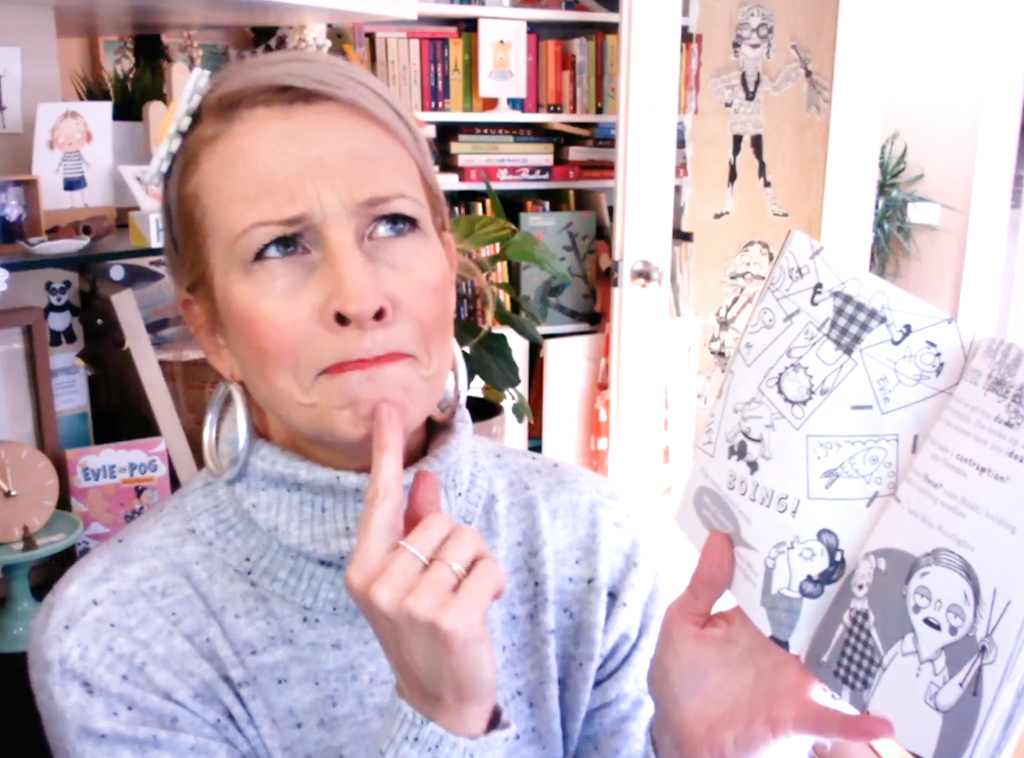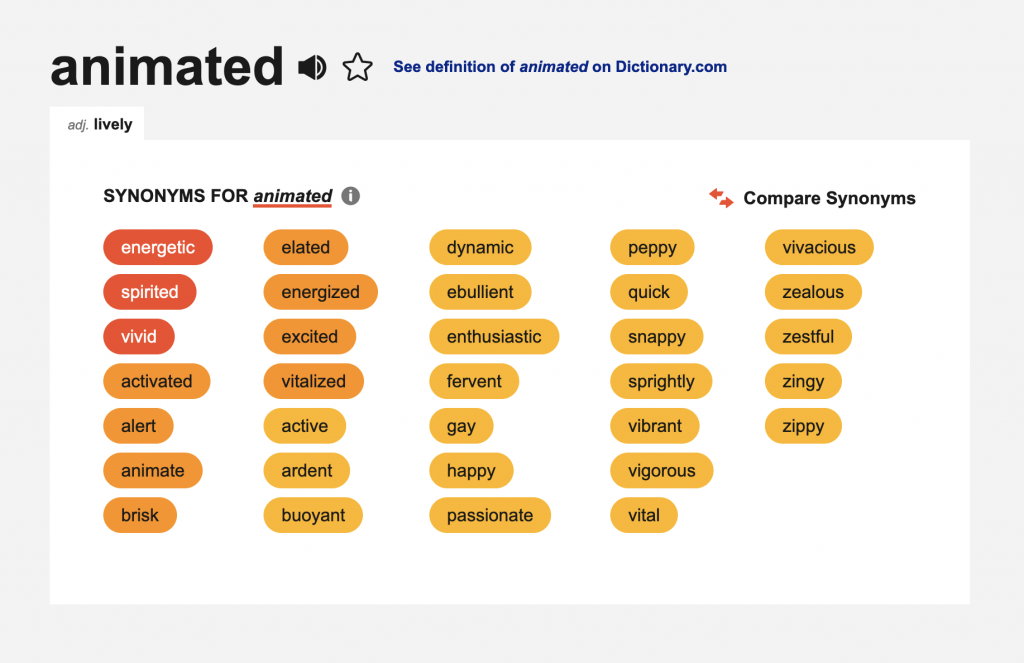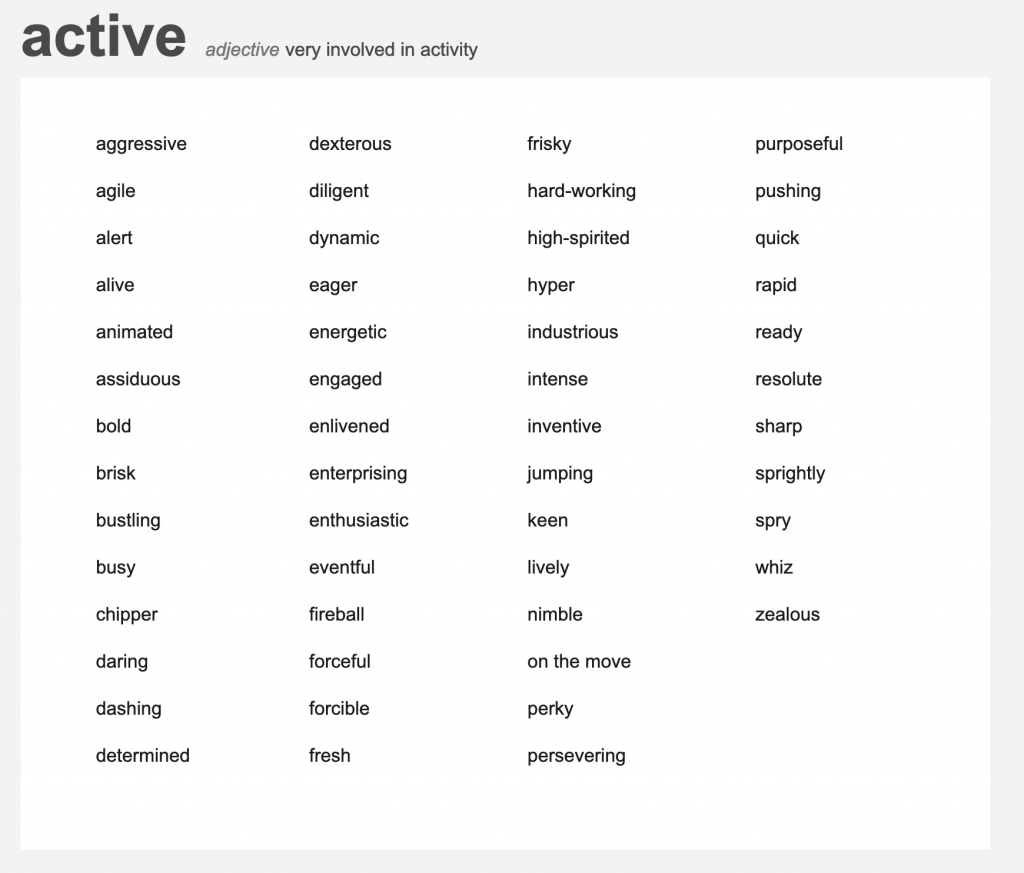
Do you struggle with word choice? Has your brain been bamboozled with the need for something unique? Are descriptive words one of the major stresses in your life, affecting the way you live, work and play?
Well, fret no more!
For a limited time only, this post will reveal your path to word freedom. You’ll never again struggle under the pressure of totally boring writing. Join me now, on this synonym journey, and set yourself free!
So … what is a synonym? I’m sure you already know, but just in case…
synonym
/ˈsɪnənɪm/
noun
noun: synonym; plural noun: synonyms – a word or phrase that means exactly or nearly the same as another word or phrase in the same language, for example luminescent is a synonym of bright.
Synonyms can be found in a thesaurus, and my favourite online thesaurus is… well – thesaurus.com. You may also find a thesaurus made into a book, with actual paper and pages! (Do you have one of these at home? Let me know in the comments.)
When you’re writing a story (or your next bestselling book), sometimes a word just won’t do. It might be a little ‘off’ in meaning. It might be boring. It might be, like, over-used, like WAY over used, like seriously. Like.
And we just can’t have that.
So, looking for a substitute that has similar meaning, or even better meaning than we dreamed or hoped, is a good good thing. It makes your work shine. It sounds lovely. It enriches your vocabulary. It can even take your writing up a level.
On top of that, it’s lots of fun. I could synonym all day long.
Let’s have a look at some groovy synonyms for some pretty common words.
HAPPY
Cheerful, delighted, elated, ecstatic, jubilant, lively, merry, overjoyed, blissful, pleased, contented, thrilled, joyful.
SAD
Blue, down, bitter, heartbroken, melancholy, mournful, pessimistic, sorry, wistful, dejected, pessimistic, sombre, sorrowful.
BIG
Colossal, enormous, huge, massive, mega, full, gigantic, immense, substantial, vast, considerable, tremendous, hefty.
SMALL
Little, wee, teeny, tiny, teensy, meagre, short, slight, young, poor, paltry, narrow, miniature, microscopic, miniscule.
Now, take a really good look at these words above. Can you see the variety in meaning? For example, a synonym for SMALL is YOUNG. If you were talking about the size of a small building, you wouldn’t call it young, but you would call a small child young.
Aren’t words amazing?
Let’s look at LIVELY – a synonym for HAPPY. It can also mean active, animated, frisky.
Words are amazing.
Synonyms are a great way to add pep and a unique style and voice to your work. Hunting out the perfect one is hugely rewarding. The great thing about sites like thesaurus.com is that you can fall down a rabbit hole of wonder and come up with some pretty amazing things… but it’s also a resourceful place.
For example, if you search HAPPY and wanted to use the synonym ANIMATED but aren’t really sure if the word will work well in your sentence, you can click on it and see what synonyms come up for it. (Image below, but see ANIMATED on the Thesaurus website here.)

You can even scroll down and see ANIMATED used in a sentence. That will help you decide if it’s the perfect word for what you want to say.

On top of that, you can scroll down and see the variety of ways ANIMATED can be used, and the meanings for each one.
For example, ANIMATED can be used if you want to show your character is being ACTIVE. It can be used to show they are acting in a BRISK way, or a CHEERFUL way. See below for more examples of the way ANIMATED can be used.
ACTIVE – adjective, very involved in activity
INSPIRED – adjective, stimulated
AIRY – adjective, light or lively in nature
JUMPING – adjective, leaping
KEEN – adjective, enthusiastic
ALIVE – adjective, being active, full of life
VIBRANT – adjective, colourful
BRISK – adjective, moving fast, active
CHEERFUL – adjective, happy!
There are something like 11 pages of these just for the word ANIMATED! And they even provide the part of speech (in this case, most are adjectives, but you may find nouns, verbs, etc, too).

WARNING
The only warning when using synonyms is this: don’t go overboard! Don’t add too many over-the-top words in a single sentence – try to stick to one, occasionally two.
And sometimes a simple word is best—it’s all you need. One example is when you write dialogue.
Your teachers may have talked to you about using the word ‘said’ when one of your characters speaks – perhaps asking you to come up with other ways to say ‘said’.
‘Hello,’ she yelled.
‘Hello,’ he whispered.
‘Hello,’ she cried.
‘Hello,’ he wept.
‘Hello,’ she laughed.
‘Hello,’ he snorted.
And on and on it goes.
Trying this out is a fantastic way to explore synonyms and to expand your vocabulary and help your reader understand the WAY the character is speaking. And it’s fine to do this, but not all the time… only when it’s absolutely needed.
It can get tiring reading all these descriptive words when a character speaks. This is because it pulls the reader out of the scene. It ruins the magic. Using ‘said’ most of the time is a good way to keep the focus on the character and their dialogue NOT on the way they are speaking. ‘Said’ kind of disappears and we don’t even really hear it. We just hear the dialogue.
Also remember that WHAT the character says will often be enough for the reader to know weather they are yelling, whispering or asking a question. That’s why we have exclamation points and question marks! But, of course, if a character says ‘LOOK OUT BEHIND YOU!!!’ then of course, you’re going to say they yelled, right? (Though, if you want to totally confuse your reader, say ‘LOOK OUT BEHIND YOU!!!’ she whispered.)
Why don’t you challenge yourself to come up with a list of synonyms for some simple words, then try harder ones. I’ll start you off with a word, below, and you can paste your synonyms in the comments field below! I’d love to see what you come up with.
Your word challenge: CRACKLE
Tan

0 Comments